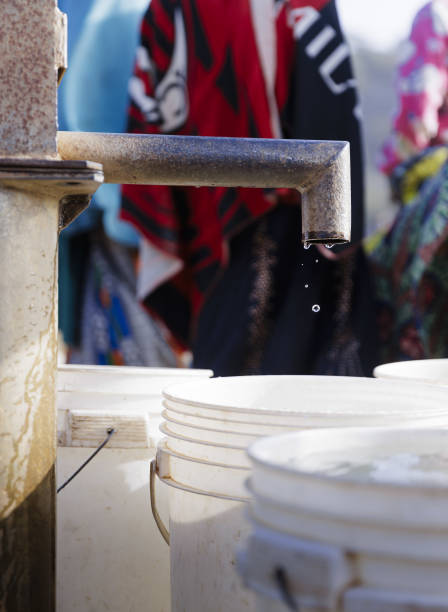Water — it is life’s most basic necessity. Yet, in many Nigerian cities, clean and reliable water remains an elusive dream for millions. From Lagos to Kano, Port Harcourt to Abuja, the story is the same: taps run dry, boreholes become the only option, and people spend hours queuing for just a bucket of water. So, who is responsible for this water crisis?
First, let’s be clear: water scarcity is not just about nature failing us. It is a result of years of neglect, poor planning, and misplaced priorities. The government at all levels—federal, state, and local—has a huge role to play. But the question is: have they done enough?
Take Lagos, for example. As Nigeria’s commercial nerve centre, the city’s population is booming, yet water infrastructure is crumbling. The Lagos State Water Corporation is overwhelmed and underfunded. Too often, promises are made during campaigns but vanish once the votes are counted. The lack of investment in modern water treatment and distribution means many residents depend on costly private suppliers or unsafe sources.
At the federal level, the Ministry of Water Resources sets policies but implementation is often weak. Coordination between agencies is poor, and corruption is a shadow that looms large. Funds meant for water projects sometimes disappear, while urban growth outpaces the pace of infrastructure development. This leaves cities scrambling to catch up with demand.
Local governments, too, cannot shirk responsibility. They are closer to the people and should ensure that communities have access to water. Yet, in many places, local authorities lack capacity or will. Water schemes break down and remain unrepaired for months or years.
But responsibility is not only on the government. Citizens must also play their part. Wasteful water use, illegal connections, and pollution worsen the problem. If everyone valued water and used it wisely, the situation could improve.
The crisis is a call to action for all Nigerians. Clean water is not a privilege; it is a right. Without it, health suffers, businesses struggle, and life quality drops. It’s time for honesty, accountability, and urgency.
Government must prioritise water infrastructure funding, fight corruption, and ensure transparent project delivery. Communities should be involved in planning and safeguarding water resources. And citizens must demand better services and care for the water they have.
The question “Who’s responsible?” has many answers, but the real solution lies in collective effort. The future of Nigerian cities depends on it. Will we rise to the challenge? The clock is ticking.

